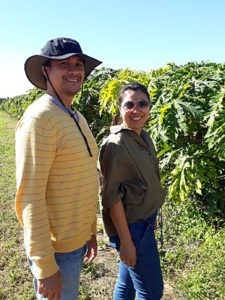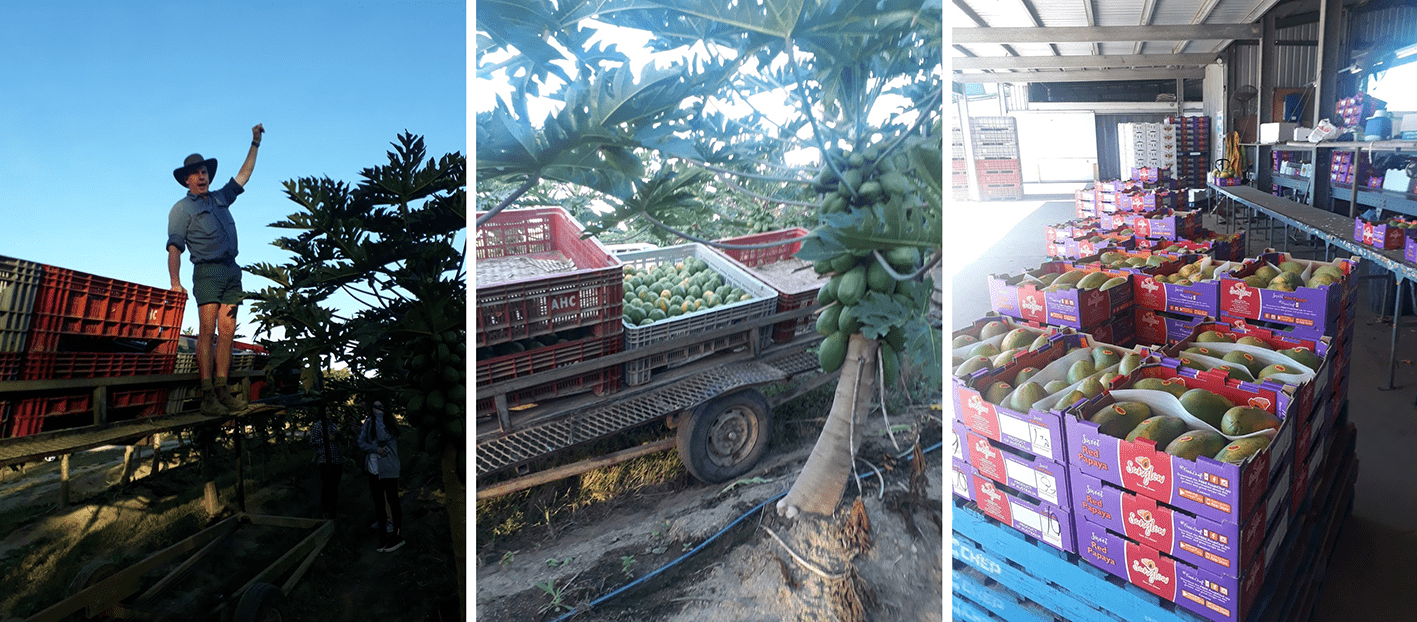

Queensland international engagement award a ‘fruitful’ collaboration
March 26, 2020
The Crawford Fund Queensland Committee supports targeted training and mentoring of overseas scientists and extension officers through its International Engagement Awards.

Dr Chat Kanchana-udomkan, a research fellow at the Environmental Futures Research Institute of Griffith University, received one of the 2019 international engagement awards to train Mr Andres Godwin C. Sajise, a researcher at the University of the Philippines, on “characterisation of PSRV-P resistance gene sequences for stable molecular selection”. Professor Rebecca Ford, Dean of the Research – Science Group at Griffith University, ensured that the objectives and expectations of the training were met in a productive, helpful and effective manner.
The training activities were conducted over 24 weeks last year. Andres, recently employed as a molecular breeder, said the training activities were designed to help him to build his expertise.
“The main aims of this training were to greatly improve co-operative and collaborative research and exchange between Australian and The Philippines papaya breeding programs, and to train a researcher from the Philippines in relevant molecular techniques, and familiarise the use of laboratory instruments in molecular biology. These were applied to breed resistant papaya against papaya ringspot virus (PRSV) disease,” explained Dr Chat in her award report.
Andres was refreshed in his understanding of concepts and introduced to new techniques for the molecular assay for the presence of PRSV-P coat protein on healthy looking and symptomatic plants. He accomplished various research activities and systematically acquired skills and techniques that produced consistent results for marker-assisted selection,” reported Dr Chat.

Dr Chat noted that additional experiments were undertaken on mircropropagation to develop an understanding on the response and interaction of various plant growth regulators at different growth stages of papaya in vitro culture.
The importance of a highly efficient papaya micropropagation system on a commercial scale was observed at Lecker Farming in Mareeba, Northern Queensland.”
“The overall training will be highly applicable to the role and responsibilities of Andres at the Philippine Genome Center. The training provided a good opportunity for researchers to develop a fruitful collaborative research program in the future,” concluded Dr Chat.




